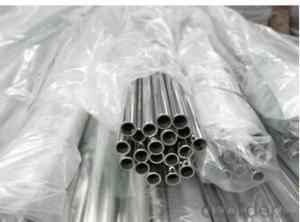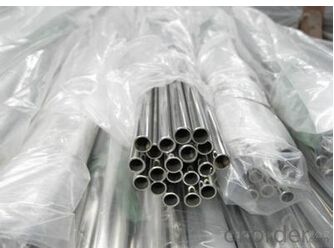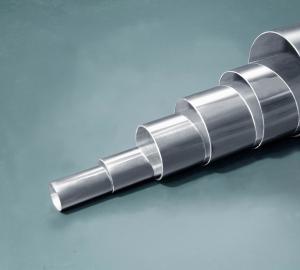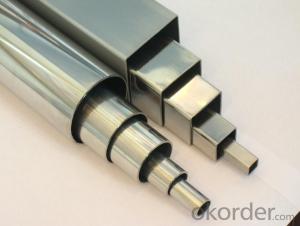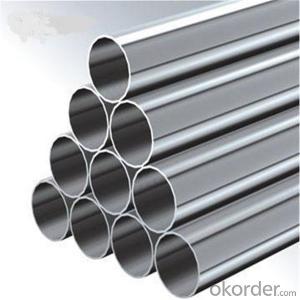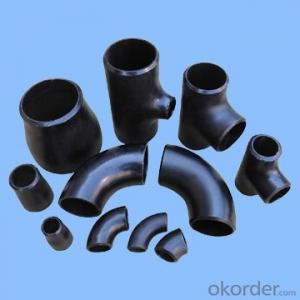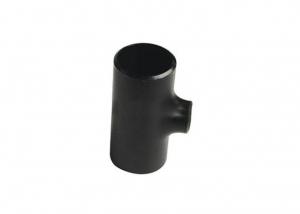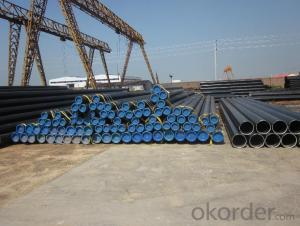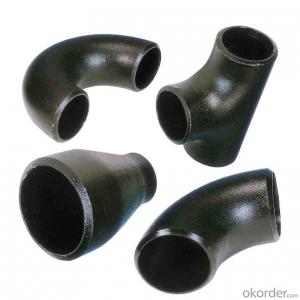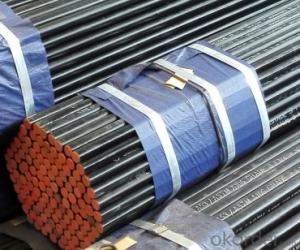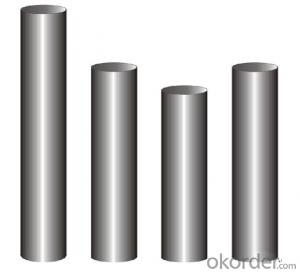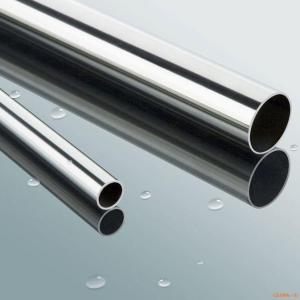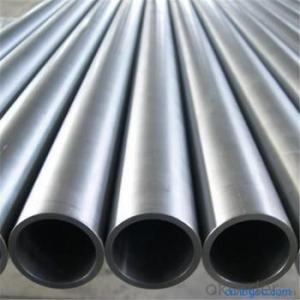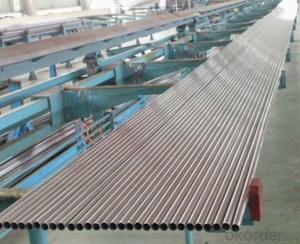Sanitary Stainless Steel Tube for food 3A
- Loading Port:
- China Main Port
- Payment Terms:
- TT OR LC
- Min Order Qty:
- -
- Supply Capability:
- -
OKorder Service Pledge
OKorder Financial Service
You Might Also Like
Specifications
1. Cold Rolled 304 &316L Material2. Highest degree of purity and cleanliness
3. For Dairy, Food, Beverage, and Other Sanitary
Product Name: 3A Sanitary Stainless Steel Tube for food
Materials
304L & 316L available with order.
Introduction
For Dairy, Food, Beverage, and Other Sanitary Applications.
Associated Tube’s sanitary tube is ideal for the dairy, food and beverage industries where the highest degree of purity and cleanliness is essential.
It is certified to the requirements of ASTM A270, 3A standards and most user specifications. Tubing is manufactured from the finest quality raw materials made exclusively to Associated Tube melt parameters.
Customers have come to rely on the quality of our sanitary tube products as well as our uncompromised commitment to total customer satisfaction.
Annealing
Hydrogen bright annealed in line to 1900°F (1040° C) minimum and rapidly quenched.
Surface Finishes
Surface finish is 20 µ-in Ra (0.5 µm) ID maximum, 30 µ-in Ra (0.8 µm) OD maximum surface roughness measured per ASME/ANSI B46.1 with the profilometer reading at 90 degrees to the lay. Other finishes available upon request.
Packaging
As a final step to ensure purity standards, each tube is packaged using 2 mil poly sleeving and both ends are sealed using air tight end caps. Tubes are packaged in protective tri-wall boxing. When specified, wood boxes and all export requirements can be provided.
Marking
Bright annealed tubing is line–stenciled with OD, wall, ASTM specifications, size, grade, heat number, production date and time. OD polished tube is marked on one end of each tube with a removable label stating ASTM specification, manufacturer, grade and heat number. Continuous line stencil available on request.
- Q: What is the difference between 304N and 316N stainless steel pipes?
- The main difference between 304N and 316N stainless steel pipes lies in their composition and properties. While both are corrosion-resistant and suitable for various applications, 316N stainless steel has a higher nickel content and includes the addition of molybdenum, which enhances its resistance to corrosion and pitting. Additionally, 316N stainless steel is often considered more suitable for use in environments with high chloride exposure, such as coastal areas or chemical processing plants.
- Q: How do you insulate stainless steel pipes?
- To prevent heat loss, condensation, and energy wastage, insulating stainless steel pipes is a crucial step. There are multiple effective methods available for insulating these pipes: 1. Pipe insulation wraps: The most common and cost-effective method involves using wraps made of materials like fiberglass, rubber, or foam. These wraps are easy to install and provide excellent insulation against heat transfer. They also serve as a barrier to prevent condensation. 2. Insulation jackets: Pre-formed covers made of insulation materials such as mineral wool or fiberglass are used for this method. These jackets are designed to fit around the stainless steel pipes and are secured with adhesive or straps. They offer a high level of thermal insulation and are ideal for pipes in areas with extreme temperatures. 3. Spray foam insulation: This method entails spraying a layer of polyurethane foam insulation directly onto the stainless steel pipes. This creates a seamless and durable insulation layer that adheres well to the pipes, providing excellent thermal insulation and preventing moisture buildup. 4. Insulation tape: Foam or rubber insulation tape is wrapped around the stainless steel pipes to provide thermal insulation. This method works best for smaller pipes or areas with limited space. Regardless of the chosen method, it is important to consider the temperature range, moisture exposure, and specific requirements of the stainless steel pipes when selecting insulation materials. Additionally, proper installation and maintenance of the insulation are essential to optimize its effectiveness and durability.
- Q: Can stainless steel pipes be pickled?
- Yes, stainless steel pipes can be pickled. Pickling is a process used to remove impurities, such as scale, rust, and other surface contaminants, from the surface of stainless steel. This is done by immersing the stainless steel pipes in a pickling solution, typically a mixture of nitric and hydrofluoric acid. The pickling solution dissolves the impurities, leaving behind a clean and smooth surface on the stainless steel pipes. Pickling is commonly used in industries such as oil and gas, food processing, and chemical processing to prepare stainless steel pipes for further processing or to improve their corrosion resistance.
- Q: What are the common applications of stainless steel pipes in the construction industry?
- Stainless steel pipes are commonly used in the construction industry for various applications such as water and gas supply systems, heating and ventilation systems, structural supports, and exterior cladding. They are preferred for their corrosion resistance, durability, and strength, making them suitable for both indoor and outdoor construction projects.
- Q: Can stainless steel pipes be insulated with polysulfone?
- Yes, stainless steel pipes can be insulated with polysulfone. Polysulfone is a high-performance thermoplastic material that offers excellent thermal insulation properties. It can be easily molded or applied as a coating onto the stainless steel pipes to provide insulation and maintain the desired temperature of the fluid being transported.
- Q: What is the difference between 321 and 347 stainless steel pipes?
- The main difference between 321 and 347 stainless steel pipes lies in the composition of their alloys. Both stainless steel grades are stabilized with titanium, which prevents the formation of harmful chromium carbides at high temperatures. However, 347 stainless steel contains additional columbium (niobium) which provides enhanced intergranular corrosion resistance. This makes 347 stainless steel pipes suitable for applications where exposure to high temperatures and corrosive environments is expected, such as in the petrochemical industry or in exhaust systems. On the other hand, 321 stainless steel pipes offer excellent resistance to oxidation and scaling at elevated temperatures, making them ideal for applications involving continuous high heat exposure, such as in aircraft exhaust systems or furnace parts. Overall, the choice between 321 and 347 stainless steel pipes depends on the specific requirements of the application, with 347 offering superior intergranular corrosion resistance and 321 providing better oxidation resistance.
- Q: Are stainless steel pipes resistant to chlorine corrosion?
- Yes, stainless steel pipes are generally resistant to chlorine corrosion. Stainless steel is known for its excellent corrosion resistance, and it is particularly resistant to the corrosive effects of chlorine and chlorinated water. This is due to the high levels of chromium present in stainless steel, which forms a protective oxide layer on the surface of the metal. This oxide layer acts as a barrier between the stainless steel and the corrosive elements, preventing the chlorine from corroding the pipe. However, it is worth noting that the resistance of stainless steel pipes to chlorine corrosion can vary depending on the specific grade of stainless steel used. Therefore, it is important to select the appropriate grade of stainless steel that is specifically designed for resistance to chlorine corrosion when using stainless steel pipes in applications involving chlorinated water or chlorine-containing environments.
- Q: Are stainless steel pipes magnetic?
- The magnetic nature of stainless steel pipes depends on the specific grade. Stainless steel is primarily composed of iron, along with chromium, nickel, and other elements in varying proportions. The magnetic properties of stainless steel are influenced by the presence of these elements. Typically, stainless steel grades with higher chromium and nickel content, such as austenitic grades (e.g., 304, 316), are not magnetic. Conversely, stainless steel grades with more ferrite, like martensitic and ferritic grades, can exhibit magnetic properties. Hence, it is crucial to consider the grade of stainless steel to ascertain its magnetic behavior.
- Q: Are stainless steel pipes suitable for underground sewage systems?
- Yes, stainless steel pipes are suitable for underground sewage systems. They have excellent corrosion resistance, durability, and strength, which make them highly reliable for handling sewage and wastewater in underground applications.
- Q: Can stainless steel pipes be used for hydroelectric power plants?
- Hydroelectric power plants can indeed utilize stainless steel pipes. The reason stainless steel is favored for various industrial applications is because of its exceptional corrosion resistance. Within a hydroelectric power plant, the generation of electricity is achieved by the passage of water through turbines. The composition and flow rate of this water can often result in corrosive tendencies. Consequently, stainless steel pipes, which are highly resistant to corrosion, are the ideal conduit for conveying the water in hydroelectric power plants. Furthermore, stainless steel pipes bring forth additional advantages such as superior strength, durability, and the capacity to withstand elevated pressures and temperatures. These properties are vital for ensuring the efficient and dependable operation of the power plant. Moreover, stainless steel pipes maintain their structural integrity over time, thus reducing the need for frequent maintenance and replacement. In addition, stainless steel pipes possess the ability to handle the internal and external pressures that arise during the power generation process. They can effectively endure the high-speed flow of water and resist erosion caused by sediment and debris in the water supply. Consequently, the longevity and efficiency of the hydroelectric power plant are secured. To conclude, stainless steel pipes are an exceptional choice for hydroelectric power plants due to their corrosion resistance, strength, durability, and ability to withstand high pressures and temperatures.
Send your message to us
Sanitary Stainless Steel Tube for food 3A
- Loading Port:
- China Main Port
- Payment Terms:
- TT OR LC
- Min Order Qty:
- -
- Supply Capability:
- -
OKorder Service Pledge
OKorder Financial Service
Similar products
Hot products
Hot Searches
Related keywords
